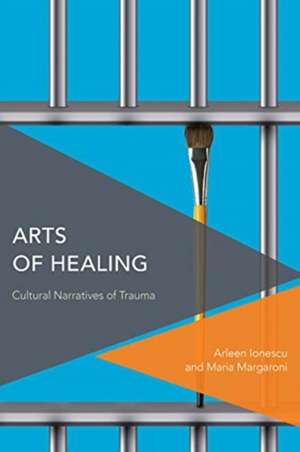ARTS OF HEALING: Critical Perspectives on Theory, Culture and Politics
en Limba Engleză Hardback – 21 iun 2020
Din seria Critical Perspectives on Theory, Culture and Politics
-
 Preț: 309.18 lei
Preț: 309.18 lei - 25%
 Preț: 815.18 lei
Preț: 815.18 lei -
 Preț: 433.87 lei
Preț: 433.87 lei -
 Preț: 430.01 lei
Preț: 430.01 lei -
 Preț: 351.17 lei
Preț: 351.17 lei -
 Preț: 450.23 lei
Preț: 450.23 lei -
 Preț: 413.47 lei
Preț: 413.47 lei -
 Preț: 430.22 lei
Preț: 430.22 lei - 27%
 Preț: 901.73 lei
Preț: 901.73 lei -
 Preț: 435.23 lei
Preț: 435.23 lei - 27%
 Preț: 935.71 lei
Preț: 935.71 lei -
 Preț: 409.83 lei
Preț: 409.83 lei -
 Preț: 409.61 lei
Preț: 409.61 lei - 27%
 Preț: 914.28 lei
Preț: 914.28 lei - 27%
 Preț: 912.05 lei
Preț: 912.05 lei -
 Preț: 293.16 lei
Preț: 293.16 lei - 27%
 Preț: 784.89 lei
Preț: 784.89 lei -
 Preț: 421.37 lei
Preț: 421.37 lei
Preț: 874.73 lei
Preț vechi: 1198.26 lei
-27% Nou
Puncte Express: 1312
Preț estimativ în valută:
167.40€ • 181.77$ • 140.62£
167.40€ • 181.77$ • 140.62£
Carte tipărită la comandă
Livrare economică 22 aprilie-06 mai
Preluare comenzi: 021 569.72.76
Specificații
ISBN-13: 9781786610973
ISBN-10: 1786610973
Pagini: 246
Dimensiuni: 152 x 229 x 24 mm
Greutate: 0.64 kg
Editura: Rowman & Littlefield
Seria Critical Perspectives on Theory, Culture and Politics
ISBN-10: 1786610973
Pagini: 246
Dimensiuni: 152 x 229 x 24 mm
Greutate: 0.64 kg
Editura: Rowman & Littlefield
Seria Critical Perspectives on Theory, Culture and Politics
Notă biografică
Arleen Ionescu is Tenured Professor of English Literature and Critical Theory at Shanghai Jiao Tong University.
Maria Margaroni is Associate Professor in Literary Theory and Feminist Thought at the University of Cyprus.
Maria Margaroni is Associate Professor in Literary Theory and Feminist Thought at the University of Cyprus.
Descriere
Proposes new ways of 'thinking trauma', foregrounding the possibility of healing and the task that the critical humanities has to play in this healing. Where is its place in an increasingly terror-haunted world, where personal and collective trauma is as much of an everyday occurrence as it is incomprehensible?
